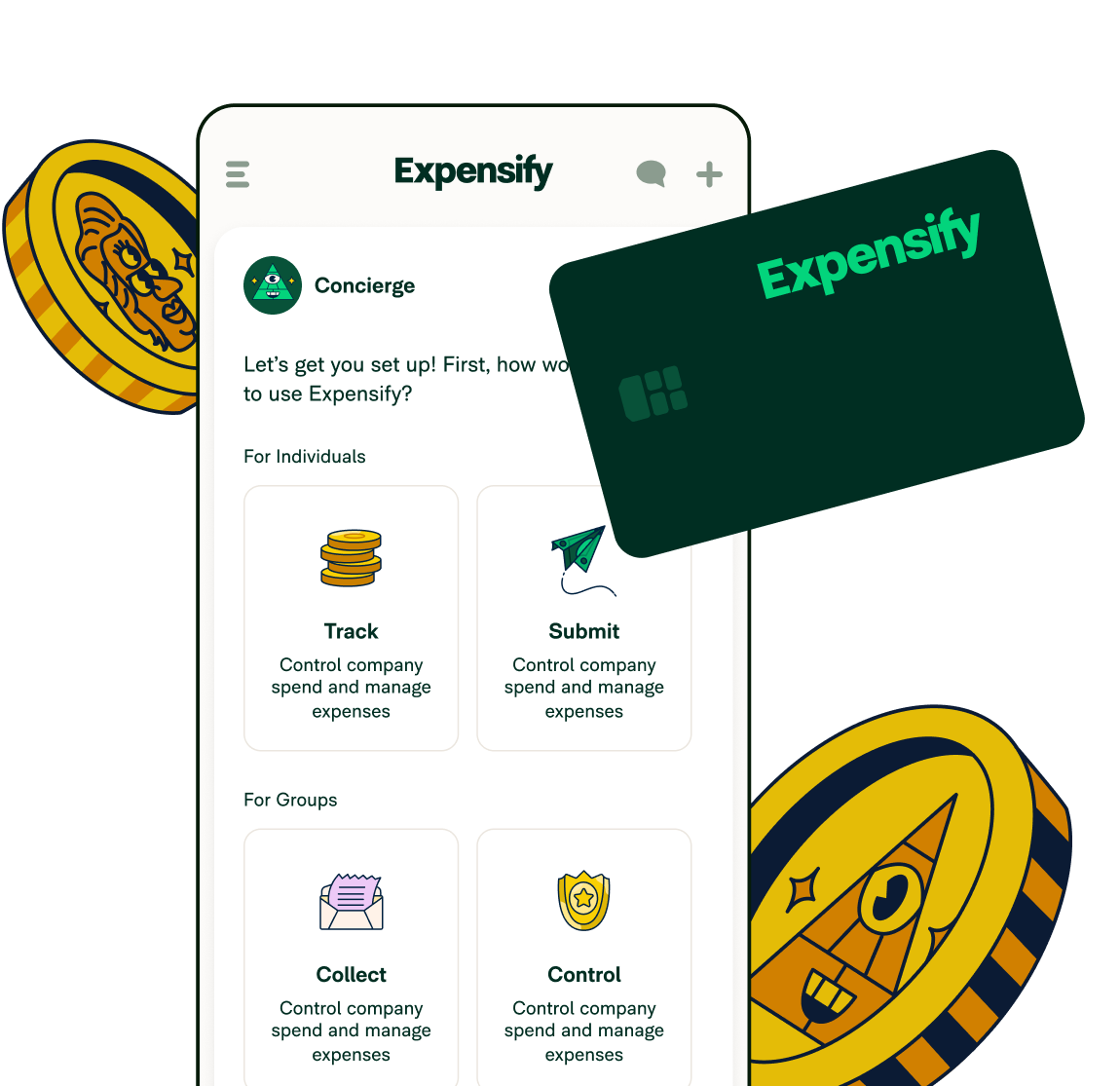The best business credit cards for new businesses

Starting a business means juggling a hundred financial decisions before you've even made your first sale. One of the earliest decisions you’ll make is how to handle business expenses without tangling them up with personal funds.
A business credit card gives new companies a way to separate finances, build credit history, and potentially earn rewards on necessary purchases. But with dozens of options targeting startups, choosing the right one requires understanding what actually matters for a business just getting off the ground – not the marketing noise designed to sound impressive.
This guide breaks down the best business credit cards for new businesses in 2026, covering approval requirements, key features, and how to use them strategically. Whether you're looking for simple cash back, flexible limits, business credit cards for new businesses with no credit, or alternatives without personal guarantees, you'll find an option that fits your business needs.
Key takeaways
- Business credit cards give new businesses flexibility and help build a credit profile
- 79% of small businesses use at least one business credit card for everyday operations
- The best card depends on business goals: cashback, travel perks, low fees, or flexible limits
- Responsible use builds credit, while misuse can damage cash flow and financial stability
- Pairing a business card with Expensify gives realtime visibility, receipt capture, and spend controls
Quick look: Best business credit cards for startups and new businesses in 2026
Here's how the top small business credit cards for new businesses compare for startups and early-stage companies:
| Card | Best for | Key features | Annual fee |
|---|---|---|---|
| Chase Ink Business Unlimited® Credit Card | Simple cashback | 1.5% cash back on all purchases, $750 intro bonus | $0 |
| Capital One Spark Cash Plus | Flexible limits | 2% cash back on everything, no preset spending limit | $150 |
| American Express® Blue Business® Plus | Everyday purchases | 2x points on first $50k annually, purchase protection | $0 |
| Bank of America® Business Advantage Customized Cash Rewards | Customizable categories | 3% cash back in chosen category, changeable monthly | $0 |
| Discover it® Business Card | Cash back match | 1.5% cash back, automatic cash back match after year one | $0 |
Each card serves different business priorities. The right choice depends on spending patterns, credit history, and whether premium perks justify annual fees.
Breaking down the options: A founder's guide to top credit cards
Let's dig into what makes each card work for new businesses and where they fall short.
Chase Ink Business Unlimited® – Best for simple cash back
Why it works for new businesses: Flat 1.5% cash back on everything means straightforward rewards without tracking categories. New businesses juggling multiple priorities appreciate the simplicity, no spreadsheets required.
Value add: The $750 intro bonus (after spending $6,000 in the first three months) can offset early startup costs like equipment, software subscriptions, or inventory – money most new businesses desperately need.
Watch out: No premium travel perks like lounge access or trip insurance. It's built for businesses that prioritize cash over points, which is great for straightforward spenders, but less exciting for travel enthusiasts.
Best use case: Service-based startups or small teams with diverse spending needs who want easy rewards tracking.
Capital One Spark Cash Plus – Best for flexible limits
Why it works: No preset spending cap means the card adapts as business expenses grow. Perfect for businesses with variable monthly costs or those anticipating rapid scaling – and no awkward calls to request limit increases.
Value add: 2% cash back on all purchases is among the highest flat-rate rewards available. For businesses spending $50,000 annually, that's $1,000 back before subtracting the annual fee.
Watch out: The $150 annual fee requires at least $7,500 in annual spending just to break even. Smaller startups may not justify the cost in year one.
Best use case: Growing businesses with fluctuating expenses or those planning significant capital purchases.
AmEx Blue Business Plus – Best for everyday purchases
Why it works: 2x Membership Rewards points on the first $50,000 in purchases each year makes it ideal for small teams buying office supplies, software subscriptions, or professional services.
Value add: American Express builds in purchase protection and extended warranty coverage even at the entry tier. Points can transfer to airline and hotel partners for maximum flexibility.
Watch out: Membership Rewards require strategic redemption to maximize value. Businesses looking for simple cash back may prefer a different option. Points redemption can feel complicated for founders already managing a dozen priorities.
Best use case: Startups with consistent monthly expenses under $4,200 who value transfer partners or plan business travel.
Bank of America Business Advantage Customized Cash Rewards – Best for categories
Why it works: Choose one category (like gas, online advertising, or travel) to earn 3% cash back on, with flexibility to change it monthly. Helpful if your business has one dominant expense type that shifts seasonally.
Value add: Category flexibility means a marketing agency can earn 3% on ads in Q4, then switch to office supplies in Q1. The ability to adapt rewards to business cycles is rare.
Watch out: The 3% rate caps at $50,000 in combined purchases annually across all categories. High spenders hit this limit quickly and drop to 1% cash back after.
Best use case: Businesses with one clear expense category that represents a significant portion of monthly spending.
Discover it® Business Card – Best for cash back match
Why it works: Automatic cash back match after the first year doubles all rewards earned in year one. A startup spending $30,000 in the first 12 months would earn $450 in cash back, then receive another $450 match.
Value add: No annual fee means lower risk for new businesses testing whether credit cards fit their financial strategy. The 1.5% flat rate is competitive even without the match.
Watch out: Fewer premium perks compared to Chase or AmEx. Customer service and acceptance aren't quite as universal as Visa or Mastercard networks.
Best use case: New businesses ramping up spending in the first year who want to maximize early rewards.
Does my startup need a credit card?
Many founders start by putting business expenses on personal cards, thinking they'll sort it out later. This creates headaches fast, especially come tax season when someone has to untangle which restaurant charge was a client meeting versus date night.
Here's why establishing a business credit card early matters:
Separate personal and business finances
Mixing personal and business spending on the same card complicates bookkeeping and muddies tax deductions. Come April, trying to remember which restaurant charge was a client meeting versus date night wastes hours you could spend actually running your business.
More importantly, keeping finances separate protects personal assets if the business faces legal issues. Business credit cards also offer purchase protection, fraud monitoring, and expense categorization tools that personal cards typically don't prioritize.
Build a business credit profile
Business credit scores exist independently from personal credit. On-time payments establish creditworthiness that helps secure loans, vendor terms, and better financing rates down the line. Without business credit history, lenders default to personal credit for decisions, limiting growth options.
Manage cash flow and large purchases
According to Visa's Small Business Pulse survey, 79% of small businesses use credit cards to make business payments, with the majority earning rewards or cash back on those purchases. That should come as no surprise, since cards help cover expenses while waiting for receivables.
In fact, 55% of small businesses use credit cards to pay for at least a quarter of their expenses. Whether it's inventory before a big order ships or software subscriptions that bill monthly, credit provides breathing room between costs and revenue.
How to choose the right card for your new business
Not all business credit cards serve the same needs. Here's how to narrow the options based on your specific situation:
Consider your primary expenses
Where does money actually go each month? Travel-heavy businesses benefit from cards offering airline miles or hotel points. Marketing agencies spending heavily on digital ads should prioritize cards with advertising bonus categories. Service businesses with diverse costs may prefer flat-rate cash back to avoid tracking.
Match rewards structure to spending reality, not aspirational plans. A 3% bonus on travel sounds great until you realize your business books only two flights per year and spends most of the budget on software subscriptions.
Weigh fees and APR
Annual fees make sense when rewards exceed costs. A card charging $150 annually needs to deliver more than $150 in value through cash back, points, or perks. Calculate break-even based on projected spending.
APR matters if carrying a balance is likely. While businesses should ideally pay balances in full, cash flow gaps happen, especially for new companies waiting on client payments. A card with 18% APR versus 24% hits differently on temporary debt.
Understand approval requirements
Most business credit cards require:
At least one year in business (though some approve newer companies)
Personal credit score of 670+ for better options
Annual revenue estimates (often $50,000+ minimum)
Personal guarantee linking the owner to debt
Requirements vary by issuer. American Express tends to be more flexible with new businesses, while Chase typically prefers established operating history.
Explore options if you have no credit
According to WalletHub data, 42% of small businesses rely on credit cards as their primary funding source, making access crucial for growth. But as a new business, you most likely don’t have any business credit. What now?
Building business credit from zero is challenging but possible. Secured business credit cards require a deposit that becomes your credit limit – typically $500 to $5,000. Some cards designed for startups prioritize bank account activity or revenue over credit score.
Prepaid cards offer another path, functioning like debit but with card payment convenience. While they don't build credit, they separate business spending and provide basic expense tracking.
What to know before applying for a business credit card
Application requirements vary, but preparation speeds up approval and prevents surprises.
Documents you'll need
Most issuers request:
Employer Identification Number (EIN), though some accept Social Security Numbers for sole proprietors
Business formation documents (LLC articles, DBA registration)
Bank account information for the business
Personal identification for the owner
Revenue estimates or financial statements
Sometimes personal SSN for credit check
Having these ready before starting an application prevents delays and awkward back-and-forth with underwriters. Incomplete applications often get denied not because the business doesn't qualify, but because underwriters can't verify information and founders gave up halfway through.
Personal guarantees
Nearly all business credit cards for new companies require personal guarantees. This means owners are personally liable if the business can't pay. The card issuer can pursue personal assets to satisfy business debt.
Personal guarantees also mean business card activity may appear on personal credit reports, impacting personal credit scores. Late payments hurt both business and personal credit. Some cards separate reporting, but verify before assuming protection.
Options with no credit check
What about business credit cards for new businesses without a personal guarantee? A few alternatives exist for businesses unable to qualify for traditional credit cards. For entrepreneurs seeking business credit cards for new businesses with bad credit, here are some options to check out:
Secured business credit cards require deposits but don't always check credit. The deposit becomes collateral, reducing issuer risk. These cards typically report to business credit bureaus, helping establish a credit history over time.
Prepaid business cards load funds in advance, eliminating credit requirements entirely. They lack credit-building benefits but provide spending controls and separation from personal finances.
Alternative financing tools like the Expensify Visa® Commercial Card base approval on business account activity rather than credit scores, offering access to companies traditional issuers reject. This approach focuses on current business health rather than past credit challenges.
For smaller operations, small business credit cards for new businesses with bad credit often come with higher APRs or lower limits initially. Building responsible payment history for six to twelve months typically unlocks better terms or graduation to unsecured cards.
The 5 best practices for using a business credit card
Getting approved is step one. Using cards responsibly determines whether they help or hurt the business. Here’s what to keep in mind when using your new business credit card.
1. Keep utilization low
Stay under 30% of your credit limit to protect credit scores and demonstrate responsible use. High utilization signals financial stress to credit bureaus and future lenders. A $10,000 limit means keeping balances below $3,000 even if cash flow allows higher spending.
2. Pay balances in full each month
Avoid interest by paying the full statement balance before the due date. Carrying balances reduces the effective value of rewards and creates a debt cycle that limits future cash flow. Interest rates on business cards often exceed 20% APR, eliminating any rewards benefits.
3. Monitor spending in realtime
Use expense tracking tools to catch unusual activity and stay on budget. Waiting until the monthly statement arrives means surprises and limited ability to course-correct. Tools like Expensify auto-capture receipts and categorize transactions as they happen.
Realtime visibility also helps catch fraud faster, limiting liability and preventing disruption to business operations.
4. Align card rewards with your biggest expenses
Choose cards that maximize cash back or points on categories where the business actually spends. A card offering 3% back on office supplies doesn't help a consulting business that spends 80% of its budget on contractor payments and software subscriptions.
Review spending quarterly to ensure the current card still matches business needs. As companies grow, expense patterns shift.
5. Separate personal and business purchases
This makes tax season smoother, bookkeeping easier, and protects personal liability. Mixing personal and business spending on the same card creates reconciliation nightmares and raises red flags during audits. Keep the business card strictly for business use.
Even seemingly small personal charges complicate expense categorization and dilute the cleanliness of financial records.
A traditional business credit card vs the Expensify Card
Traditional business credit cards work well for companies with established credit and predictable expenses. But they're not the only option, especially for startups still building business credit.
Built for new businesses
The Expensify Card requires no credit check and bases limits on your business account balance rather than credit history. This gives new companies access to corporate cards even when traditional issuers decline applications.
Realtime expense management included
Each purchase auto-syncs into Expensify for instant reporting. Receipts scan automatically, expenses categorize in realtime, and reports generate with one click. What takes hours with traditional cards and separate expense software happens automatically.
Simpler than a credit card
No interest, no revolving debt risk, and no wondering whether the business can afford current spending. The card pulls from funds already in the account, giving clear visibility into your available budget. It functions like a corporate debit card but with the fraud protection and acceptance of a Visa card.
For businesses managing multiple employees, virtual cards create unique numbers for each team member or project, adding granular spend control without juggling multiple physical cards.
Choosing the right card and managing it smarter
Business credit cards can be a powerful tool for startups, offering flexibility, rewards, and a way to establish credit history. Looking ahead at business credit cards for new businesses in 2025, more and more options are on the table for founders without traditional credit profiles. Success depends on choosing the right card and using it responsibly.
Start by aligning rewards with your largest expenses. A card offering travel perks doesn't help a software company rarely leaving the office. Match card features to real spending patterns, not aspirational ones.
Practice healthy credit habits from day one. Pay balances in full monthly, keep utilization low, and track spending in realtime so surprises don't derail cash flow. A business credit card should make financial management easier, not add complexity or stress.
For businesses not yet ready for traditional credit, the Expensify Card provides a no-credit-check alternative that scales with your account balance and comes with built-in expense management.
Whether you choose a traditional business credit card or an alternative like Expensify, pairing it with smart expense tracking tools ensures spending stays under control and financial visibility never drops.
FAQs about the best business credit cards for new businesses
-
Yes, you can get a business credit card for your startup, though approval depends on several factors. Many issuers approve startups with less than one year in operation if the owner has good personal credit (typically 670+ credit score).
Some cards specifically target new businesses and consider factors beyond just time in operation, including revenue projections and industry type.
Secured cards offer another path, requiring deposits that become credit limits.
-
Cards with the lowest barriers typically include secured options requiring deposits, or cards from issuers known for approving newer businesses like American Express or Discover. Store-branded cards often approve startups more readily than general-purpose cards.
The tradeoff: easier approval usually means lower limits, fewer rewards, or higher fees.
Cards that base approval on factors beyond credit scores, like bank account activity or revenue, provide alternatives for businesses without established credit history.
-
Yes, LLCs can apply for business credit cards immediately after formation. You'll need your EIN, formation documents, and business bank account. Most issuers still require a personal guarantee from the owner, linking personal credit to approval.
Having an LLC structure doesn't eliminate personal credit requirements for new businesses, but it does start building separate business credit history.
-
Some creditors allow you to apply for a business credit card using only an EIN without providing a Social Security Number, though this is increasingly rare for new businesses. Most issuers require SSN for the personal guarantee and credit check, even when the card is under the business name. Sole proprietors can sometimes use their SSN in place of an EIN.
-
The best first card depends on spending patterns and approval likelihood. For simplicity, the Chase Ink Business Unlimited® offers straightforward 1.5% cashback and no annual fee.
For businesses unable to qualify traditionally, consider options like the Expensify Card that don't require credit checks. Match the first card to immediate needs rather than aspirational spending – reward structures only matter if approval happens.
-
Most major business credit cards integrate with popular expense management platforms. Expensify connects with Chase, American Express, Capital One, Bank of America, and most other issuers for automatic transaction import. The integration syncs transactions, matches receipts, and categorizes spending without manual entry.
For the best integration, the Expensify Card eliminates any sync delay since purchases happen within the Expensify ecosystem, creating instant expense reports.
-
Rewards value depends on spending categories. American Express Blue Business Plus offers 2x points on the first $50,000 annually (up to $4,200 monthly) – strong for diverse business purchases. Capital One Spark Cash Plus provides 2% flat cashback with no spending cap, ideal for high-volume spenders. Bank of America Business Advantage lets you choose a 3% category monthly, useful if one expense type dominates. Chase Ink Business Unlimited® keeps it simple with 1.5% on everything.
The "best" reward structure matches where your business actually spends money.
-
Yes, several solutions offer virtual cards for team expense management. Expensify provides virtual cards for each employee or project, creating unique card numbers that track spending by individual or category. This eliminates the need for employees to use personal cards and wait for reimbursement.
Each virtual card has customizable spending limits and controls, adding granular oversight without juggling multiple physical cards.
-
Cards from major issuers (Chase, AmEx, Capital One, Bank of America) integrate with most expense management platforms through automatic data feeds. The integration quality matters less than the expense management software itself. Expensify connects with dozens of card issuers and syncs transactions, receipts, and categories automatically.
For seamless integration without any sync delays, the Expensify Card eliminates third-party connections entirely since expenses happen within the same system. Consider cards based on rewards and approval likelihood first, then verify integration compatibility with your preferred expense platform.
Simplify business spend from day one
Start strong with the right tools. Pair your new card (or the Expensify Card) with Expensify for realtime expense tracking, receipt scanning, and spend visibility. Managing business finances doesn't have to be complicated, even when you're just getting started.
The right combination of card and expense management platform turns hours of manual work into automatic processes, freeing up time to focus on building the business.
Whether you're comparing options or ready to apply, understanding how business credit cards work gives new businesses a strategic advantage from day one. If you’re ready to try out the Expensify Card, just fill out the form below and we’ll take it from there. Happy expensing!








